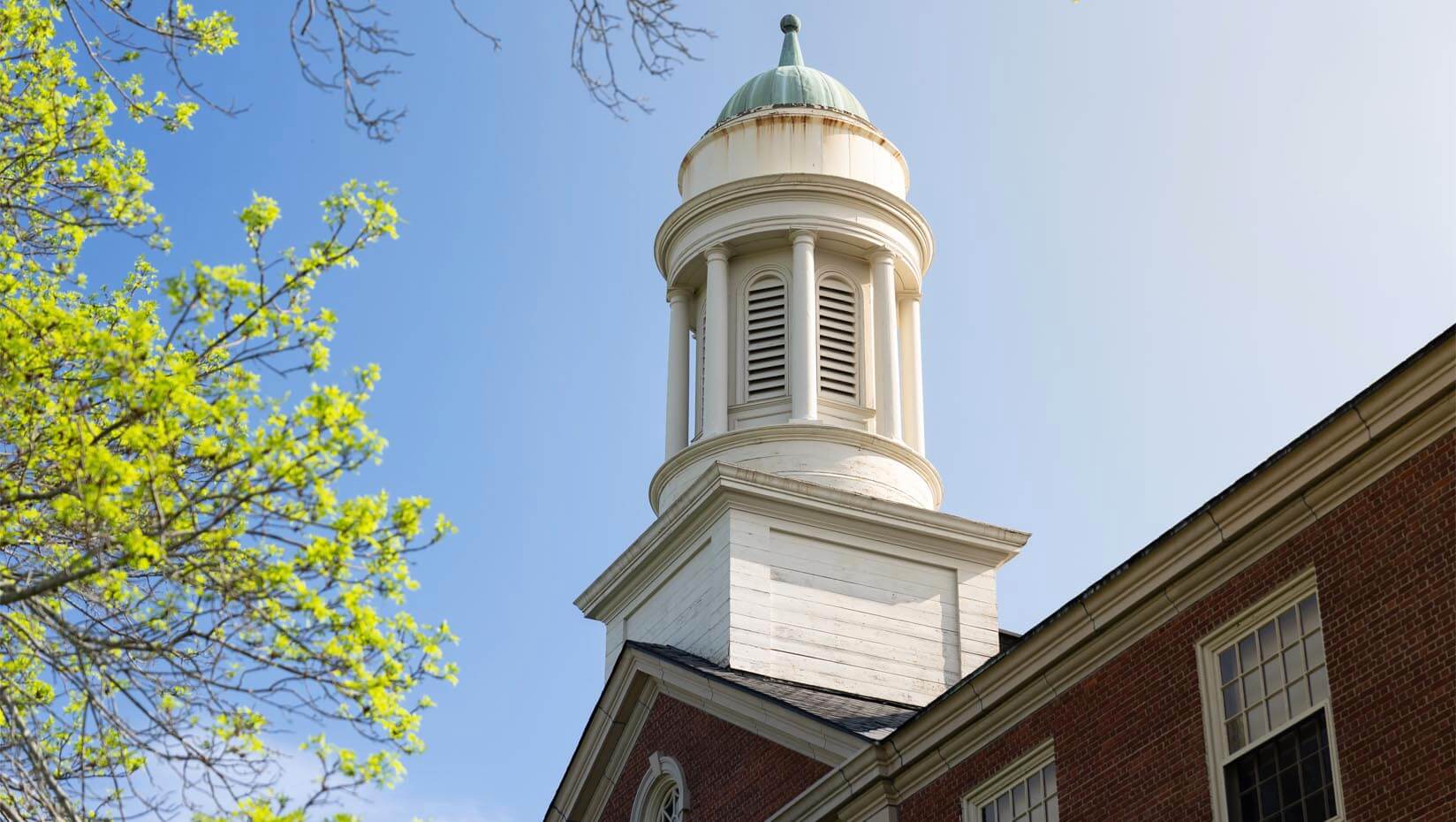
UMaine names 2025 Presidential Award recipients
The 2025 Presidential Awards recognize outstanding teachers in microbiology and marine biology; applied research in creative blind and low vision technologies; engagement with Maine’s youth through outdoor education; innovation in shellfish cultivation; and extraordinary impact on economic enhancement and collaboration across Maine.
Gayle Kraus, professor of marine ecology at the University of Maine at Machias, and Melissa Maginnis, associate professor of microbiology, received Presidential Outstanding Teaching awards. Nick Giudice, professor of spatial computing and VEMI Lab founder and chief research scientist, received the Presidential Research and Creative Achievement Award. Ryder Scott, executive director of UMaine 4-H Centers, received the Presidential Public Engagement Achievement Award. Brian Beal, professor of marine ecology at UMaine Machias and director of the Marine Science Field Station, received the Presidential Innovation Award. Jake Ward, vice president of strategic partnerships, innovation, resources and engagement, received the Black Bear Award for Extraordinary Impact.
“These equally dedicated and accomplished faculty and staff exemplify how the University of Maine and the University of Maine at Machias have been essential to the advancement of our learners and our state,” said UMaine and UMaine Machias President Joan Ferrini-Mundy. “Gayle has taught two generations of students how to observe the world with an open mind, a kind heart and a creative eye — always with a lens for science. Melissa brings her nationally recognized expertise in the field of virology directly into her classroom, where student-led research lays the groundwork for this country’s next biomedical scientists. Through his determination to better the lives of millions who are blind and low vision, like himself, Nick pioneered innovative technologies and established new techniques for people to receive and process information. Ryder extended his enthusiasm for Maine’s beautiful outdoors, from the coast to the forested hillsides, to all of its youth by developing engaging outdoor education. Brian has expanded the state’s blue economy by collaborating in the development of not one, but two, shellfish hatcheries in Downeast. Jake has lended a strong hand to Maine’s heritage industries by establishing connections that benefit our economy and our students.
“This year’s Presidential Award recipients honor both our campuses and the many communities they serve,” Ferrini-Mundy said. “I personally want to thank them for their contributions to our students, graduates and Mainers at large, and look forward to seeing what they achieve next.”
Gayle Kraus
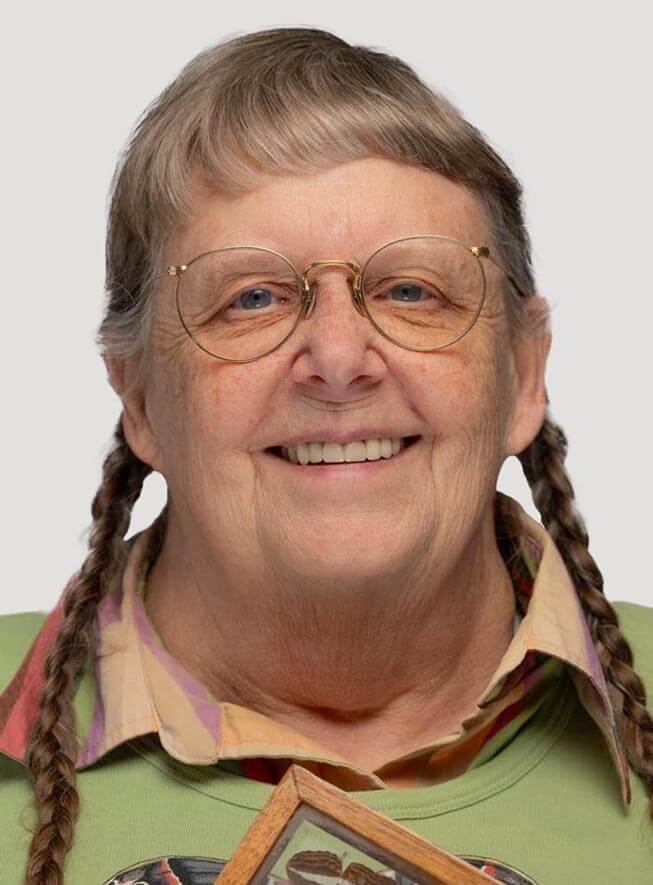
Throughout Kraus’s 44 years of teaching marine biology courses, her love for it has never waned. She is just as excited about teaching today as she was at the beginning of her career. She has changed the lives of many, not only in the classroom, but also as an adviser and mentor.
Kraus significantly enhances her students’ educational experiences by designing coursework that gives them an opportunity to be on the sea and along the coast. Her use of immersive field experiences deepen student understanding by connecting classroom learning to real-world application. With an expertise that spans the topics of ichthyology, marine biology, marine mammals, invertebrates, ornithology, skeletal articulation and wildlife rehabilitation, Kraus has a personal way of connecting those around her with knowledge. She teaches others to imagine the world as she does: through the eyes of the subject, whether that be a New Zealand abalone shell or a harbor seal.
During the fall, spring and summer, Kraus works with students to create and maintain the aquaculture laboratory, where they are tasked with nurturing a healthy ecosystem in fish tanks, and the campus labyrinths, which are creative pathways for people to explore made of logs, flowers and other natural elements. For over two decades, she and her students have participated in the Marine Mammal Stranding Network to collect and assess data on the carcasses of marine animals such as seals, sharks and whales, as well as rescue and perform basic triage on a variety of seal species. She also helps students set up research aquariums for culturing corals, a skill needed to restore reefs that provide habitats for endangered marine species.
Throughout her career, Kraus’s research on marine ecosystems — from soft shell clams to macrobenthic organisms — has been included in over a dozen abstracts and publications.
Her advice to future teachers is to not be afraid of extending beyond the comfort zone and learn along with students, which is when Kraus said the adventures start. She strives to keep her courses experiential, ever changing and relevant so that her students are always entertained.
Kraus was recognized by Commissioner Judy Camuso of the Maine Department of Inland Fisheries & Wildlife in 2021 for her volunteer work to stabilize and rehabilitate injured birds and mammals. She has been a Maine state permitted wildlife rehabilitator for approximately 30 years and participates annually in the Audubon Christmas Bird Count.
Melissa Maginnis
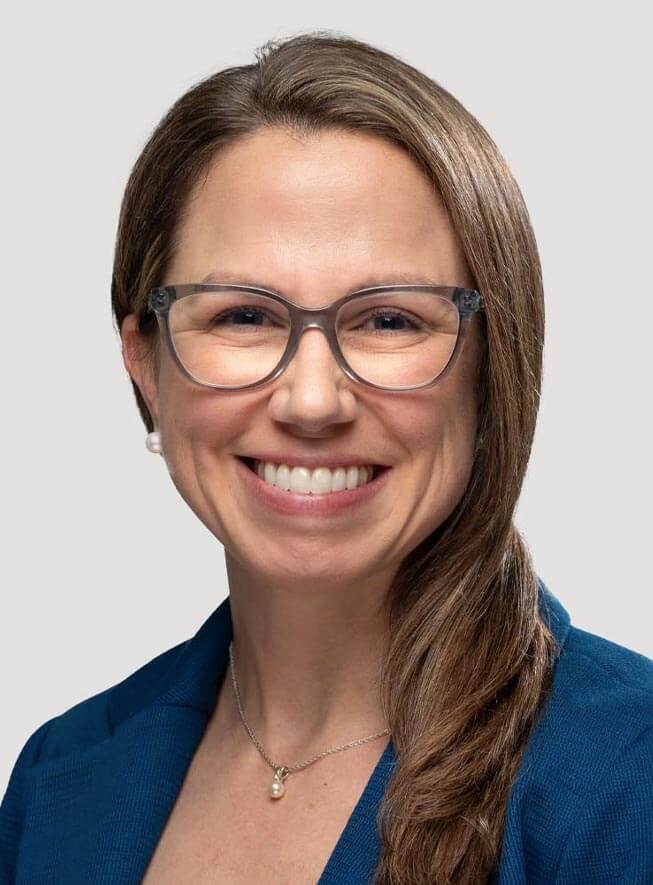
Maginnis has dedicated her career to understanding the complexities of viral disease and training the next generation of biomedical scientists. As associate professor of microbiology, Maginnis leads both undergraduate and graduate students in research and learning and has mentored and advised students through the Maine Top Scholars program and Health Professions Advisory Committee.
Maginnis joined the Department of Molecular and Biomedical Sciences in 2014 and has established herself as an expert in the field of virology. She leveraged her talents to help Maine’s public universities navigate the COVID-19 pandemic as the scientific lead for the University of Maine System Science Advisory Board. Her work earned her recognition through national media appearances, including on Jimmy Kimmel Live! and in The Wall Street Journal.
As co-chair of the American Society for Virology (ASV) Education and Career Development Committee, Maginnis collaboratively led the creation of the first ever curriculum guidelines for undergraduate and graduate virology education. She applied that knowledge at UMaine by redesigning an upper level virology course, designing a new course for graduate students and developing a research intensive virology course for undergraduates. The latter was selected as one of the first Advanced Research Learning Experience courses as part of UMS TRANSFORMS, a program funded through generous support from the Harold Alfond Foundation.
Maginnis’s breadth as an educator is exemplified through her ability to teach both advanced and beginner courses, such as the widely popular “Phage Genome Discovery” course for first-year students. Despite the challenging nature of her subject matter, students find Maginnis’s classes to be fun and interactive as she promotes student agency and teaches them the values of thinking critically and self critiquing their own work.
In addition to the more than $3 million in grant funding she has secured from sources including the National Institutes of Health, her mentorship has helped students secure funding for their own research proposals. She has trained over 30 undergraduate students, eight Ph.D. students and three master’s students and has served on more than 60 thesis committees.
Maginnis reaches prospective students by serving on the Office of Major Scholarships Advisory Council and at the Maine State Science Fair as a scholarship judge. She is the faculty advisor for Undergraduate Women in STEMM and partners with the women’s soccer head coach, Scott Atherley, to support the recruitment of female student athletes.
She received the 2024 Graduate Faculty Mentor Award and the 2018 Graduate Mentor Award from the Graduate Student Government; the 2024 Mel McClure Global Community Impact Award from the Office of International Programs; and the 2022 Faculty Mentor Impact Award from the Office of the Vice President for Research.
Nicholas A. Giudice

For Giudice, research impact and translation are paramount. Since joining UMaine in 2008, he has focused his work on improving the independence and quality of life for millions of people worldwide who are blind and low vision (BLV), including older adults, as vision loss is predominantly age related. Giudice himself is congenitally blind and has pioneered tools, technologies and techniques to promote information access for BLV individuals in multiple disciplines including spatial cognition, transportation and STEM education.
Giudice is a professor of spatial computing in the School of Computing and Information Science and the chief research scientist of UMaine’s Virtual Environment and Multimodal Interaction (VEMI) Laboratory. He founded and has developed the VEMI Lab, alongside its director Rick Corey, to a multidisciplinary and student-driven research hub home to a first-of-its-kind full motion, multi-person autonomous vehicle simulator used to study human-vehicle collaboration.
Giudice’s research program combines approaches from experimental psychology, cognitive neuroscience and human-computer interaction to study how the brain fuses spatial information from multiple senses — audition, language, touch and vision — to support spatial learning and behavior. His work has motivated new theories about how nonvisual and multisensory information is represented in the brain and led to the development of universally designed multisensory tools that support graphical access, navigation and autonomous transportation.
Giudice’s research group also has established multisensory techniques to promote human-vehicle collaboration with autonomous vehicles, aiming to make the human-AI interactions needed for this emerging form of transportation universally accessible and intuitive. This groundbreaking research led to a U.S. Department of Transportation design award and an invitation to visit the White House in 2022.
Giudice has authored or co-authored more than 150 scientific publications relating to the study and design of multisensory information access technology. He has also been the principal investigator or co-principal investigator on more than $17 million in research grants and awards from the National Institutes of Health, the National Science Foundation and the U.S. Department of Transportation. He frequently collaborates with industry partners on research to support universal design.
Giudice has served on the program committees of dozens of scientific conferences and workshops and the scientific advisory boards of two information access companies. He sits on the Board of Directors of The Iris Network, a nonprofit that serves the BLV community. In 2017, he co-founded Unar Labs LLC, a Maine-based start-up company pioneering information access technologies.
Giudice received the 2023 Outstanding Faculty Award for Research and Creative Achievement from UMaine’s College of Liberal Arts and Sciences and UMaine’s 2019 Faculty Mentor Impact Award.
Ryder Scott
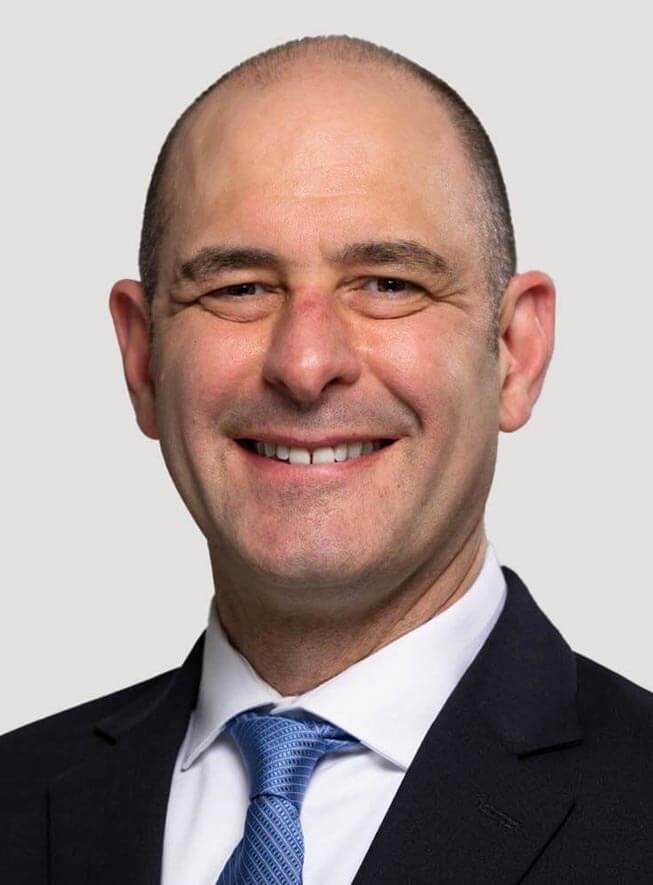
Scott has dedicated his professional career to the growth and development of Maine’s youth. Scott joined University of Maine Cooperative Extension in 2007 as the program director for the UMaine 4-H Camp & Learning Center at Bryant Pond. Today, he provides statewide leadership as the executive director of the 4-H Learning Centers, which include Blueberry Cove, Tanglewood, Greenland Point and Bryant Pond. He plays a pivotal role in transforming outdoor education and youth development across the state.
Under Scott’s leadership, these 4-H sites have evolved from summer camps to year-round learning centers that prioritize experiential education, foster a deep connection with the natural world and help young people reach their fullest potential. Through the year-round program offerings at the 4-H Centers, thousands of young people have gained invaluable skills in leadership, conservation and stewardship. In an era when technology can lead to a “nature deficit” in youth, Scott and the programs he leads ensure that students have an opportunity to engage in immersive outdoor experiences that promote problem-solving, teamwork and personal growth.
A defining characteristic of Scott’s work is his conviction to the idea that exposing youth to experiential learning opportunities in the outdoors is essential and should be universally accessible. Through scholarship programs, community partnerships and innovative programming, he has worked to ensure that children from all of Maine’s communities have the opportunity to experience the benefits of outdoor learning. In service of this goal, Scott has cultivated strong collaborations with educators, nonprofit organizations, state agencies, philanthropic entities and policymakers.
He was instrumental in creating the Telstar Freshman Academy, a partnership between MSAD 44 and the Bryant Pond 4-H Center. This unique approach to high school education at the Bryant Pond 4-H Center combines interdisciplinary, project-based curriculum with best practices in experiential and outdoor learning to create a vibrant, engaging environment for all district ninth graders.
Scott also helped launch the NorthStar 4-H Youth Mentoring program in Oxford County. Through long-term mentorship support from adults, the program aims to raise college and career aspirations for youth from rural Maine communities. Since its inception in 2017, the program has expanded beyond its pilot site to two additional school districts serving hundreds of youth.
As a recognized leader in outdoor education across the state, Scott has been instrumental in building a coalition of outdoor education organizations to form the Maine Outdoor School for All initiative. This effort aims to provide every middle schooler in the state with a formative overnight experience at an outdoor learning center with their classmates. These efforts by Scott and his team have generated millions of dollars of external funding and have developed into program innovations that are having widespread impact for Maine youth.
Brian Beal

Beal (’79 UMM, ’94G UMaine) has spent four decades improving the economic impact and relevance of Maine’s coastal communities. Beal’s methods for cultivating commercial shellfish have helped Maine’s blue economy adapt to the impact of changes in the Gulf of Maine.
He contributed to the rise of the Downeast Institute for Applied Marine Research and Education from its position as a local shellfish hatchery to the easternmost marine research and education center in the U.S. Formerly known as the Beals Island Regional Shellfish Hatchery, the Downeast Institute started as a six-town affair in the basement of a retired elementary school. Within a decade, involvement in the facility grew to 72 communities. Beal, director of the Marine Science Field Station at the Institute, further expanded its scope by introducing research on scallops, mussels and oysters.
A professor of marine ecology, Beal splits his time between teaching at the UMaine Machias and conducting research. Each year since 1987, he selects two or more undergraduate students to participate in 12-14 week internships at the Downeast Institute. He also guides students who conduct marine biology or ecology studies as part of their Senior Thesis in Biological Research course.
Beal was instrumental in establishing Maine’s first lobster hatchery in the late ‘80s. At the request of a group of lobstermen from Cutler, Beal collaborated with UMaine’s Darling Marine Center to enhance lobster stocks. The Cutler Lobster Hatchery became obsolete in the ‘90s when lobster reproduction exploded from warmer waters in the Gulf of Maine. Around the same time, the director of the Shellfish Research Laboratory at the National University of Ireland, Galway, invited Beal to demonstrate his method of rearing lobster. His technique is now used in European and Canadian facilities for research and lobster stock enhancement.
Beal is a member of the Maine Department of Environmental Protection Clean-up and Response Fund Review Board and the Downeast Institute Board of Directors, and is chairman of the Maine Aquaculture Innovation Center Board of Directors. He received the 2000 UMaine Machias Teacher of the Year Award and the 2015 Bourne-Chew Award from the National Shellfisheries Association, of which he is also a member. Additionally, he was recognized as a 2001 UMaine Machias Distinguished Alumnus and was included in Maine Magazine’s list of 50 Mainers creating a brighter future for the state in 2019.
James S. “Jake” Ward IV
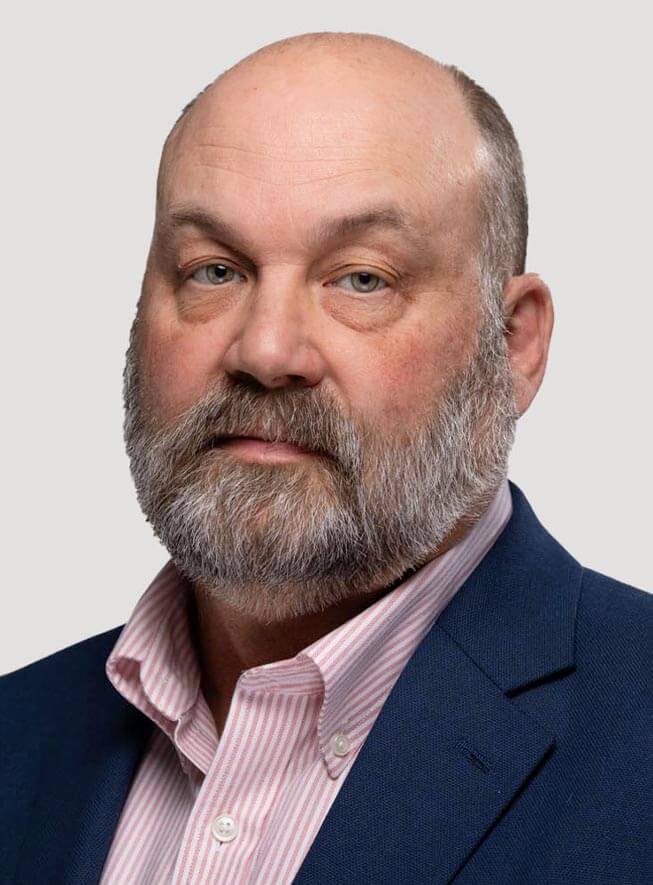
Jake views UMaine’s service commitment to the state through a tripartite lens: kids, companies and communities.
That three-word phrase has become a mantra for Jake, who strives to ensure that each group benefits maximally from all that UMaine has to offer as the vice president of strategic partnerships, innovation, resources and engagement. For nearly 35 years, he has advocated for innovation and collaboration, working to translate UMaine research and development into economic opportunity for Maine’s youth, companies and communities, present and future. His visionary leadership and strategic policy work have resulted in major research and innovation investments for UMaine and stimulated the growth of the state’s innovation ecosystem and overall economy.
Jake joined UMaine in 1990 as coordinator of the Maine Inventor’s Network, where he supported hundreds of inventors — from backyard innovators to university researchers — with navigating patents, funding and commercialization pathways. Later, as the director of UMaine’s Department of Industrial Cooperation, Jake formalized and expanded UMaine’s technology transfer, industry collaboration and economic development efforts, bridging the gap between university research and private-sector needs.
Jake’s work to bring early stage innovations in composites, aquaculture and environmental engineering to market helped establish UMaine as an authority in these sectors. Ongoing efforts have cemented the university’s leadership and resulted in major investments from the Department of Energy, the National Science Foundation, the Economic Development Administration, the U.S. Department of Agriculture and the Department of Defense, among others.
A skilled strategist and coalition builder, Jake has played a pivotal role in shaping Maine’s research and development policy landscape. His advocacy and collaboration with lawmakers led to the establishment of the Maine Economic Improvement Fund and the Maine Technology Institute, both of which provide critical, ongoing support for research that drives economic growth. He was also instrumental in securing UMaine’s early National Science Foundation EPSCoR grants that led to the development of transformative research centers, including the Advanced Structures and Composites Center and the Aquaculture Research Institute.
Throughout his career, Jake has worked across disciplines at UMaine to fill the gap between university expertise and Maine’s real-world challenges, from the innovation and diversification of heritage industries to the threat of the COVID-19 pandemic. He is a champion of hands-on learning and workforce development opportunities for Maine’s youth, ensuring they have the skills to continue growing Maine’s emerging industries. He has also supported the resilience and growth of Maine’s communities through university research collaboration, such as Maine’s Forest Opportunity Roadmap (FOR/Maine) and the Outdoor Recreation Economy Roadmap.
Contact: Ashley Yates; ashley.depew@maine.edu
